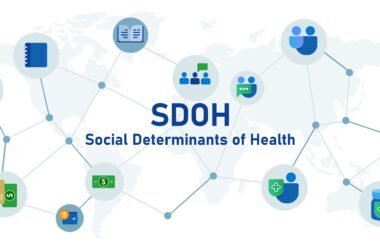Improving health and health equity demands a comprehensive approach. While treating illness is crucial, addressing the root causes of poor health is equally important, while some claim it is more important. Social, economic, and environmental factors, collectively known as social determinants of health (SDOHs), significantly influence health outcomes. These “drivers” of health are interconnected and influenced by systemic issues like racism, bias, and inequities. To truly elevate health and achieve equity, we must understand these complex relationships and implement targeted interventions to achieve improved public health infrastructure.
The Urgent Need For Change
The U.S. population is facing a health crisis, with the overall nation’s health slipping behind that of other developed countries, and the gap is widening. It’s especially tough for those already struggling – people in marginalized communities are hit hardest. This isn’t just a health problem; it’s affecting our economy, our workplaces, and our national security.
To turn things around, we need a big-picture solution. Focusing on social factors like education, housing, and jobs is key. By improving these areas, we can not only boost people’s health but also create stronger, more healthy communities. Here’re some priorities that we can focus on for improving the nation’s health.
A multi-faceted approach is critical to address these pressing health challenges and create a healthier, more equitable society. The following strategies can significantly impact population health and limit disparities.
- Build A Strong Public Health Infrastructure
- Combat The Opioid Crisis
- Engage In Environmental Justice To Address The Climate Change
- Empower Individuals Through Economic Stability
- Improve Education Access And Quality
- Invest In Healthy & Climate-Resistance Housing Solutions
- Expand Access To Quality Care
- Build Strong And Safe Communities
- Build A More Equitable Future With Racial Equity And Inclusive Policies
1. Build A Strong Public Health Infrastructure
A robust public health infrastructure is critical for preventing disease, promoting health, and responding to crises. Investing in public health programs, research, and workforce development can significantly improve community health outcomes and reduce disparities.
2. Combat The Opioid Crisis
The opioid epidemic continues to destroy communities across the nation. Comprehensive strategies, including prevention, treatment, recovery support, and harm reduction services, are crucial to addressing this crisis and saving lives.
3. Engage In Environmental Justice To Address Climate Change
Climate change poses a big threat to human health. Investing in clean energy, reducing pollution, and protecting natural resources are essential for mitigating climate impacts and creating healthy environments for all.
4. Empower Individuals Through Economic Stability
Poverty is a major driver of subpar health outcomes. Policies that increase income create jobs, and provide access to essential resources can help individuals and families achieve better health and well-being.
5. Improve Education Access And Quality
Education is a robust tool for improving health and economic opportunities. Expanding access to quality education, from early childhood to higher education, can help individuals develop the skills and knowledge needed to thrive.
6. Invest In Healthy & Climate-Resistance Housing Solutions
Safe, stable, and affordable housing is foundational to good health. Investing in housing development, preservation, and support services can improve residents’ physical and mental well-being. Additionally, creating climate-resilient housing is essential to protect communities from the impacts of climate change.
7. Expand Access To Quality Care
Making sure that everyone has access to affordable, quality healthcare is crucial for preventing disease, managing chronic conditions, and promoting overall well-being. Expanding coverage, improving care coordination, and investing in primary care can help close health disparities.
8. Build Strong And Safe Communities
Strong social connections and safe environments are vital for health and well-being. Supporting community-based organizations, investing in violence prevention programs, and creating safe public spaces can help build resilient communities.
9. Build A More Equitable Future With Racial Equity & Inclusive Policies
Racial and ethnic disparities in health are persistent and unacceptable. Implementing policies and programs that address systemic racism, encourage diversity and inclusion, and empower marginalized communities are essential for achieving health equity.
Final Thoughts
Achieving optimal health and health equity demands a multifaceted approach that addresses the intrinsic interplay of social, economic, and environmental factors. By investing in public health infrastructure, combating the opioid crisis, prioritizing environmental justice, empowering individuals through economic stability, improving education and housing, expanding access to quality healthcare, encouraging strong communities, and advancing racial equity, we can create a healthier, more just, and equitable society for all.
It is imperative to recognize that these efforts require sustained commitment, collaboration, and innovation. By collaborating together, we can build a healthier future where everyone has the opportunity to thrive.
[Read More: The Underlying Connection Between Affordable Housing And Health]












